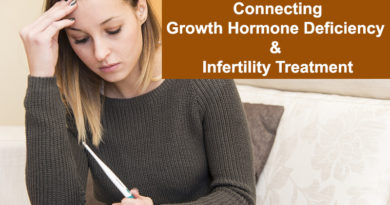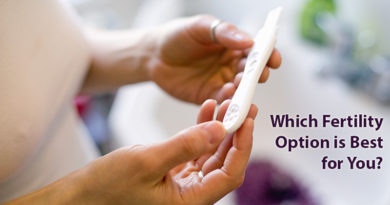Optimizing Fertility – What You Need To Know
In this article
- Age Plays a Major Role In Fertility
- Keep Your Weight In Check
- Hormone Imbalances Are Often The Cause Of Infertility
- Bad Habits Can Impair Your Ability To Conceive
- So, What Can You Do To Optimize Your Fertility?
- Sum Up
- 7 Key Takeaways
Introduction

Optimizing fertility is essential if you plan on starting or growing your family. It is important to understand which factors can affect your reproductive health and what you can do to level it up. In this article, we will go more in-depth into this matter.
Age Plays a Major Role In Fertility
One of the most important factors affecting a woman’s fertility is age. Female fertility begins to decline in the late 20s and continues to decline throughout the 30s and 40s. This decline is due to a decrease in the number of a woman’s eggs, mainly due to hormonal changes. Therefore, women need to be aware of their reproductive timeline and plan accordingly if they want to have children.
Keep Your Weight In Check
Another important factor that can affect a woman’s fertility is her weight. Being underweight or overweight can negatively impact a woman’s ability to conceive. Being underweight can disrupt the menstrual cycle and reduce the production of hormones necessary for ovulation. On the other hand, being overweight can lead to insulin resistance and inflammation, disrupting the menstrual cycle and affecting ovulation. Therefore, women need to maintain a healthy weight to optimize their fertility.
Hormone Imbalances Are Often The Cause Of Infertility
Fertility is intrinsically linked to your hormones. The latter is a key element that dictates when women are of reproductive age, how their menstrual cycle works, and how easily they will conceive. Hormonal imbalances such as Polycystic Ovary Syndrome (PCOS) can result in infertility if left untreated.
To optimize your fertility, getting your blood tested regularly and checking your hormone levels is vital. Private MD Labs is a trusted lab that can help you get an insight into your hormonal health with their Female Hormone Testing panels. You can order your test online with no previous doctor’s appointment.
If your hormone results happen to be out of the norm, discuss them with your doctor. They will guide you through further testing and treatment if needed.
Bad Habits Can Impair Your Ability To Conceive
In addition to age and weight, other factors that can affect a woman’s fertility include stress, smoking, and excessive alcohol consumption. Chronic stress can disrupt the production of hormones necessary for ovulation or increase hormones that impair such function, which can make it difficult for a woman to conceive. Smoking can damage a woman’s eggs and reduce her fertility, similar to excessive alcohol consumption which can also affect hormone production and ovulation. It goes without saying that alcohol consumption and smoking are leading risk factors for developing chronic illnesses like diabetes, heart disease, and cancer. Therefore, women need to manage their stress levels, avoid smoking, and drink alcohol in moderation to optimize their fertility.
So, What Can You Do To Optimize Your Fertility?
First, you must ensure that you are leading a healthy lifestyle. Eating a nutritious and balanced diet is the first step to creating the most optimal conditions in your body for pregnancy. A healthy diet can help regulate a woman’s menstrual cycle and improve the quality of her eggs. This implies:
- Eating plenty of fruits and vegetables. Try to include as many colors as possible since each color can provide different nutrients for your body.
- Eating whole grains like oats, beans, brown rice, whole wheat bread, and quinoa instead of refined carbohydrates such as white bread, white rice, and sweets.
- Eating enough lean proteins. Fish is a great source of protein and omega-3, an anti-inflammatory molecule. Chicken breast, lean pork, and lean beef cuts are also healthy options. Additionally, eggs, cheese, skim milk, and low-fat yogurt should be present in your daily diet.
- Including moderate amounts of healthy fats such as nuts, seeds, avocado (and its variations like guacamole and avocado oil), and olive oil.
- Drinking plenty of water during the day. The rule of thumb (and forgive us if this is TMI) is to drink water until your pee has a very light color, similar to lemonade.

Once pregnant, you should still eat a very healthy diet to ensure you’ll be on a smooth path to motherhood. Additionally, these are the nutrients that you should be focusing on the most:
- Folate: found in leafy greens, chickpeas, beans, and liver. This nutrient is key in preventing neural and spinal defects in your future baby.
- Iron: found in meat, egg yolks, and dairy. It is an important nutrient in preventing anemia and will be a key component when you conceive. When pregnant, your blood volume must increase to supply your baby with enough oxygen, which will require more iron.
- Calcium: found abundantly in dairy products such as milk, cheese, and yogurt. It is important to have an adequate intake of this mineral to improve your baby’s bone health and prevent preeclampsia (high blood pressure during pregnancy, a tricky complication) and preterm births.

Other Healthy Habits To Keep On Your To-Do List
In addition to following a healthy diet, regular exercise can also help optimize a woman’s fertility. Exercise can help maintain a healthy weight, regulate the menstrual cycle, and improve the overall health of the reproductive system. It also has destressing properties and can improve your sleep which has been proven to aid in fertility. However, avoiding excessive or strenuous exercise is important, as this can have the opposite effect and decrease fertility.
Sum Up
Overall, several factors can affect a woman’s fertility. By being aware of these factors and optimizing your fertility, you can increase your chances of conceiving and having a healthy pregnancy. This includes maintaining a healthy weight, managing stress levels, avoiding smoking and excessive alcohol consumption, eating a healthy and balanced diet, and getting regular exercise.
Checking your hormones regularly at a trusted lab such as Private MD Labs can also give you insight into your hormonal health and help detect imbalances that may impair your fertility. If you’ve always dreamed of having a family, take control today and start paving the way to a brighter future!
7 Key Takeaways
- Fertility is intrinsically related to your hormones.
- One of the most common hormone imbalances that affect fertility is PCOS.
- Hormone testing can help you understand your hormonal health and discover any imbalances.
- As we age, our chances of successfully conceiving decrease. Plan your pregnancy ahead.
- Managing your weight and eating a healthy, nutrient-dense diet are vital steps to optimize your fertility and prevent complications during pregnancy.
- Exercising, managing stress, and getting good quality sleep are habits that should also be taken into account if you want to increase your chances of a successful pregnancy.
- Avoid excessive alcohol and smoking. Both of these bad habits harm fertility.



